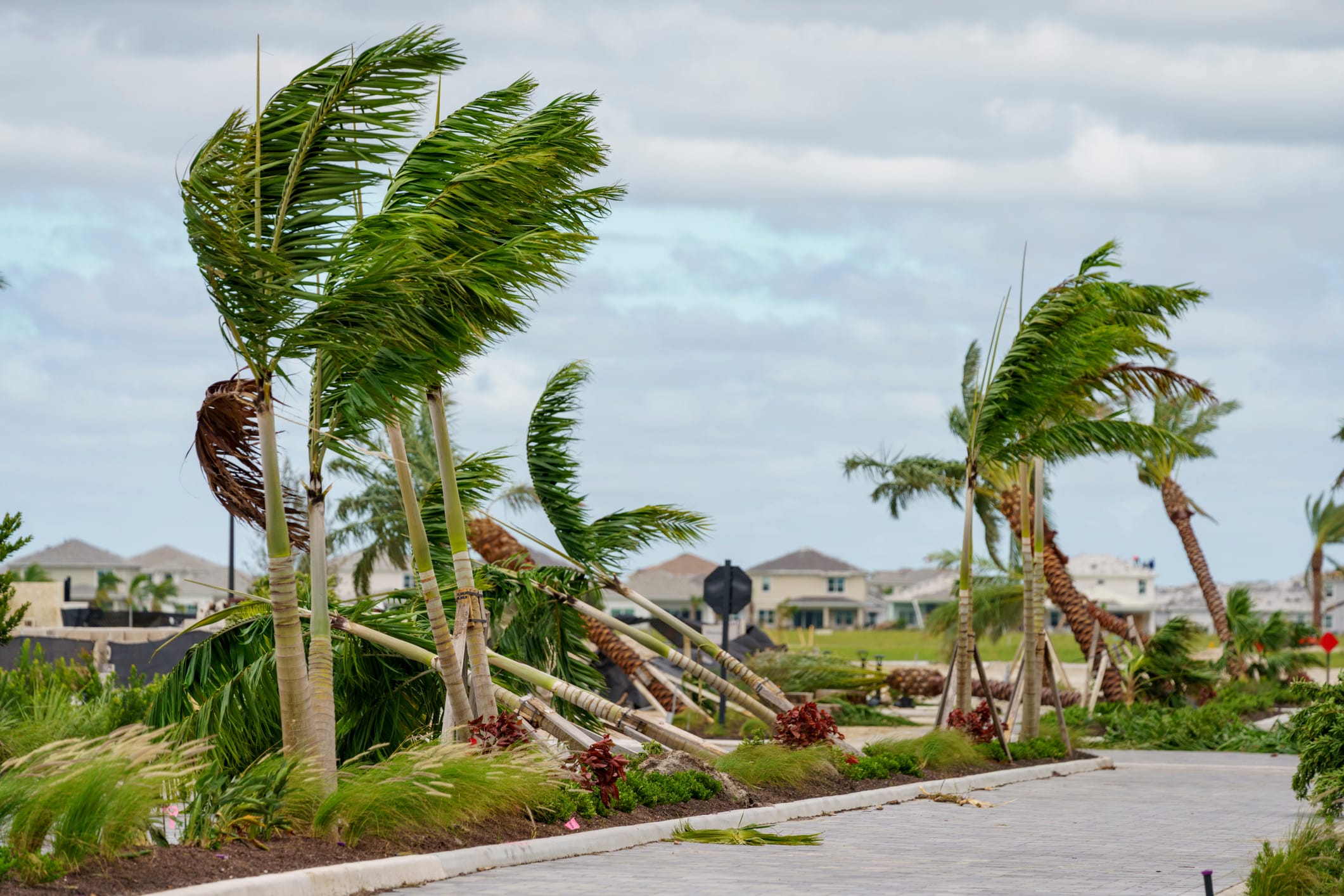Hurricane Insurance: 6 Tips for a Successful Claims Process
With an average cost of $23 billion per event, hurricanes are incredibly destructive disasters. Causing wind damage, flooding, power outages, and more, it's critical to be prepared with the proper insurance.
Amid the stress and chaos following an extreme weather event, filing an insurance claim can be challenging. Read on to learn more about hurricane deductibles and unlock tips for filing a hurricane insurance claim.
How Does Hurricane Insurance Work?
Hurricane insurance isn't a standalone policy. Instead, you may have a hurricane deductible on your homeowners' insurance or flood insurance policy for related losses if you live in a high-risk area. Your hurricane deductible is often a percentage of your home's insured value and not a fixed dollar amount. States with hurricane deductibles include:
- Alabama
- Connecticut
- Delaware
- Florida
- Georgia
- Hawaii
- Louisiana
- Maine
- Maryland
- Massachusetts
- Mississippi
- New Jersey
- New York
- North Carolina
- Pennsylvania
- Rhode Island
- South Carolina
- Texas
- Virginia
- Washington, D.C.
Policies and deductibles vary greatly. It's best to contact your insurance agent to ensure you have the appropriate coverage.
Tips for Filing a Hurricane Insurance Claim
While your insurance agent and adjusters should guide you through each step of making a hurricane insurance claim, these tips will help you limit additional damage and make the most of your coverage.
1. Immediately contact your insurance carrier.
Don't wait to file your hurricane insurance claim--do it right away. The sooner you begin the process, the more accurately adjusters can assess damage and the sooner you can start rebuilding.
2. Address areas that could be exposed to further loss.
Any action you can take to prevent losses from continuing should be a top priority. Examples of this include turning off the water to a broken pipe in your home or calling a contractor to repair exposed wiring that could lead to a fire. Most insurance contracts or policies actually require this of the insured.
3. Always take safety precautions around damaged property.
While the above step is important, taking action isn’t worth putting your safety at risk. Call in a professional, take steps to increase your safety, or keep people away from the damaged area if it isn’t safe.
RELATED: 9 Questions to Ask Before Signing a Service Contract
4. Not sure if something is covered? File your claim anyway.
For most carriers, filing a claim where nothing is ultimately paid out for the loss doesn’t negatively affect premiums. Just ensure that the damages will exceed the deductible on file listed for that type of loss. So if you’re not sure, go ahead and file your claim.
5. Be patient.
Hurricanes are catastrophic events that affect millions of people. In fact, about 11 million U.S. residents had to relocate to another part of the country because of wildfires, floods, and hurricanes in 2024. So, it's important to remember the damage won’t be repaired overnight. Unfortunately, even if insurance carriers are flying in adjusters, there simply aren’t enough of them to help every person immediately. The same goes for contractors – there are only so many of them available, and there are only so many hours in the day. Help is on the way, but everyone must be patient with the process when possible.
6. Ask your insurance agent or community manager any questions.
Take advantage of their expertise and ask them your questions. It’ll give you a little more peace of mind during a trying time. Document your experiences, learn from them, and share them with others in the community so everyone can be better prepared for the future.
More Insurance Coverage Information
By being proactive throughout the hurricane insurance claims process, you can help your family and community achieve a smoother recovery from the recent hurricanes and tropical storms. These tips are designed to help you do just that.
Want to learn more about insurance? Read our article, "8 Ways to Maximize Your HOA Insurance Coverage," now.
